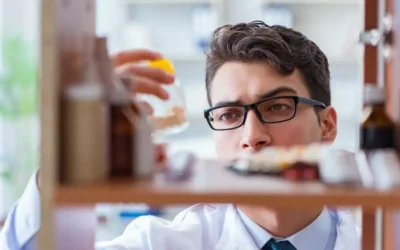Or you might attend an intensive inpatient group a few times each week. The danger of alcohol may also be greater depending on the dosage you prevention of substance use and mental disorders take. If you take the maximum dosage for depression—20 mg of Lexapro—your risk of effects from Lexapro and alcohol may be even higher.
National Institute on Alcohol Abuse and Alcoholism (NIAAA)
The proportions who used antidepressants were 6.8% of male and 9.1% of female abstainers; 4.6% and 9.2% of low-risk drinkers; 3.8% and 9.2% of moderate drinkers; and 5.4% and 13.6% of hazardous drinkers. Among current drinkers, men consumed more alcohol than did women, for all measures of alcohol consumption (Table 2 and Table 3). In many cases, one of the more tangible ways to support your mental health and reduce the likelihood of increased mental and physical health issues is to address the alcohol abuse problem and stop drinking all together. However, this should also be discussed in detail with your doctor or other treatment professional, as abruptly quitting drinking can result in a dangerous withdrawal syndrome in some individuals. S.S.R.I. medications — which include citalopram (Celexa), sertraline (Zoloft) and escitalopram (Lexapro) — are the most commonly prescribed class of antidepressants.
Types of Drug Interactions With Alcohol
Because of this competition, the body’s levels of both the antidepressant and alcohol can be higher than with either alone. With a higher level of each in the system, potential side effects of both may be exacerbated. These can range from sedation and dizziness to falls and even fatal overdose. Given the prevalence of both antidepressants and alcohol use, it’s not surprising that the two often collide. To drink or not to drink while on an antidepressant—that is the question.
Examples of common medications known to interact negatively with alcohol
Although having more energy can be a good thing, it may mean you can’t relax or sit still even if you want to. Fatigue and drowsiness are common, especially during early weeks of treatment with an antidepressant. More resources for a variety of healthcare professionals can be found in the Additional Links for Patient Care. If you’re at low risk of alcohol misuse and want to have a drink once in a while, it might be OK.
- Many studies have found that alcohol dependence is closely linked to depression.
- Alcohol interferes with glutamate release, causing a drastic slowdown of all brain regions.
- Talk to your doctor before you have a drink to see what’s safest for you.
- Substantially higher use of antidepressants was reported by depressed respondents than by nondepressed respondents (30.7% v. 3.2% for men; 36.6% v. 6.2% for women).
Related content
Also, if you drink alcohol while taking a certain type of antidepressant called an MAOI, your blood pressure could rise dramatically and could even cause a stroke. Finally, sometimes the liver cannot process all of the toxins present when alcohol is combined with antidepressants and fatal toxicity can occur. If you suffer from either alcohol use or addiction, it is imperative that you inform your medical practitioner of the quantity and frequency of your drinking. An individual who suffers from alcohol addiction should first seek treatment for substance use before starting on antidepressants. A good rehab program should address both of these concerns—treating co-occurring disorders is essential towards ensuring that a person is balanced in a way that is foundational to their sobriety. Most people are unfamiliar with the side effects of drinking while taking antidepressants.
Both Zoloft and alcohol are central nervous system depressants, meaning that they slow or suppress brain activity. This can be dangerous, and in severe cases, it can cause slowed breathing, coma, and death. Concurrent use with alcohol can also cause some antidepressants to be metabolized more extensively and become less clinically effective than usual. Some studies indicate that variations in genes may play a role in the effectiveness and risk of side effects of specific antidepressants. So your genes may, at least in part, determine whether a certain antidepressant will work well for you and whether you’re likely to have certain side effects. Agitation, restlessness or anxiety can result from the stimulating effect of certain antidepressants.
If your depression gets worse or you have thoughts of harming yourself, talk to your doctor immediately. American Addiction Centers (AAC) is committed to delivering original, truthful, accurate, unbiased, and medically current information. We strive to create content that is clear, concise, and easy to understand. Some liquid medications, such how does alcohol affect blood pressure as cough syrups or NyQuil, may also contain alcohol. Receive free access to exclusive content, a personalized homepage based on your interests, and a weekly newsletter with the topics of your choice. Receive free access to exclusive content, a personalized homepage based on your interests, and a weekly newsletter with topics of your choice.
“Therapeutic interventions designed to address both issues often include a focus on addressing emotional pain or trauma, as well as developing and practicing healthy coping behaviors,” says Kennedy. Our experts continually monitor the health and wellness space, and we update our articles when new information becomes available. If you or someone you know is having thoughts of suicide, a prevention hotline can help.
Much like barbiturates (sedatives), alcohol is a drug that affects the central nervous system (CNS) and the brain’s functionality. This risk is especially high in children, teens, and young adults. It’s also more likely to happen during the first few months of treatment and when your doctor changes dangers of mixing adderall and alcohol your dosage. Because alcohol can make your depression worse, it can also lead to increased suicide risk. Mixing Lexapro with alcohol could make symptoms of your condition worse. A 2017 clinical trial found that caffeine increases the effectiveness of antidepressant medications in rodents.
People with depression and anxiety have lower than normal levels of serotonin in their brain. SSRIs effectively raise serotonin to improve mood and relieve depression. The use of medication to treat an alcohol use disorder and a major depressive disorder depends entirely on the individual and their circumstances.





